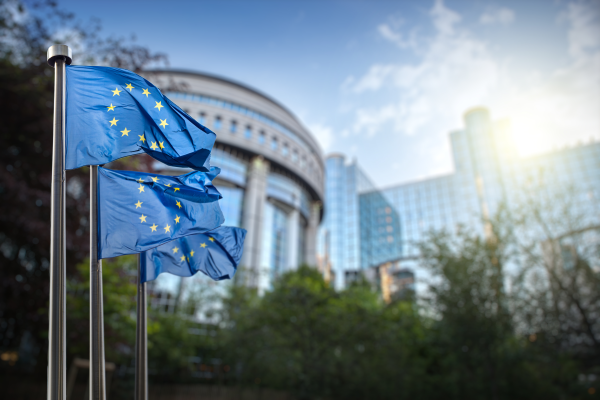The European Federation of Steel, Tubes and Metals Distribution & Trade (EUROMETAL) has written to top EU policymakers, including Commission President Ursula von der Leyen, Executive Vice-President Maroš Šefčovič, and Commissioner Stéphane Séjourné, warning that rising imports of steel derivatives are slipping through gaps in EU trade and carbon regulation.
Although these products are made predominantly from steel, they are classified under non-steel customs codes and therefore fall outside the scope of instruments such as the Carbon Border Adjustment Mechanism (CBAM), the EU Green Deal, and circular economy rules. This has opened the door to a flood of cheaper, high-carbon imports from countries with lower environmental and labor standards.

Market impact: rising volumes and competitive distortion
Steel derivatives encompass a broad range of finished and semi-finished products, including automotive parts, electrical equipment, prefabricated structures, industrial machinery, and railway components.
Since 2010, imports of these products have more than doubled, exceeding 8 million mt per year. Automotive components alone now account for around 40 percent of total derivative imports. EUROMETAL claimed that steel production in China, Turkey, and Vietnam is subsidized, and that the EU largely imports from these countries where environmental regulations are less stringent. This creates a competitive imbalance that disproportionately harms small and medium-sized enterprises (SMEs), a critical segment of Europe’s steel-processing and manufacturing ecosystem, and damaging strategic sectors such as renewable energy, electrification, mobility, defense and infrastructure.
Circular economy and strategic risks
The surge in imports also has significant implications for Europe’s circular economy. These derivative imports displace equivalent EU production, undercut prices, and introduce carbon leakage. The embedded steel in these imports is often of non-EU, high-carbon origin and enters with no carbon traceability or trade defense oversight.
In 2024, the US expanded Section 232 tariffs to over 400 steel derivative products and introduced a mandatory “Melt & Pour” origin rule to trace where steel was melted and cast. This closed loopholes and limited circumvention via third countries. As a result, exporters redirected up to 15 percent of global steel derivative flows from the US to the EU, which lacks equivalent origin tracking or carbon pricing for derivatives. This makes the EU vulnerable as a “dumping ground” for low-cost, high-carbon products.
EUROMETAL identifies three key risks arising from this unchecked trend:
- Climate risk: Imports carry higher carbon footprints but are not covered by CBAM, undermining EU climate goals.
- Industrial and strategic risk: Processing and high-waste transformation happen abroad, meaning 30-70 percent of steel scrap is lost to EU circular economy loops.
- Economic risk: Outsourcing production erodes EU control over industrial value chains, making the bloc a passive consumer and undermining resilience in sectors like defense, electrification, and infrastructure.
EUROMETAL’s policy proposals
To counter these threats, EUROMETAL is urging Brussels to act decisively and swiftly. Its proposed measures include:
- Expanding CBAM coverage to include steel derivatives based on steel content and import volumes.
- Applying trade defense instruments to derivative products, as is already done for primary steel.
- Adopting a “Melt & Pour” rule to trace the origin of embedded steel and prevent circumvention through third countries.
- Strengthening customs enforcement with digital monitoring and harmonized procedures to flag suspicious trade flows.
- Prioritizing high-risk product groups such as automotive components, while supporting downstream industries with modernization incentives and scrap retention policies.
Political urgency: a call for coordinated action
EUROMETAL stresses that Europe’s steel-based manufacturing chain is being “silently eroded” by these imports. Without swift intervention, the organization warns, deindustrialization could become structural and irreversible, as OEMs shift sourcing abroad and SMEs lose their place in global value chains.
Drawing parallels with the US’ rapid response during past trade disputes, EUROMETAL argues that similar political will is now required in Europe to protect jobs, meet climate objectives, and preserve industrial resilience. It urges the European Commission and member states to act in a coordinated and strategic manner to close regulatory loopholes before lasting damage is done.